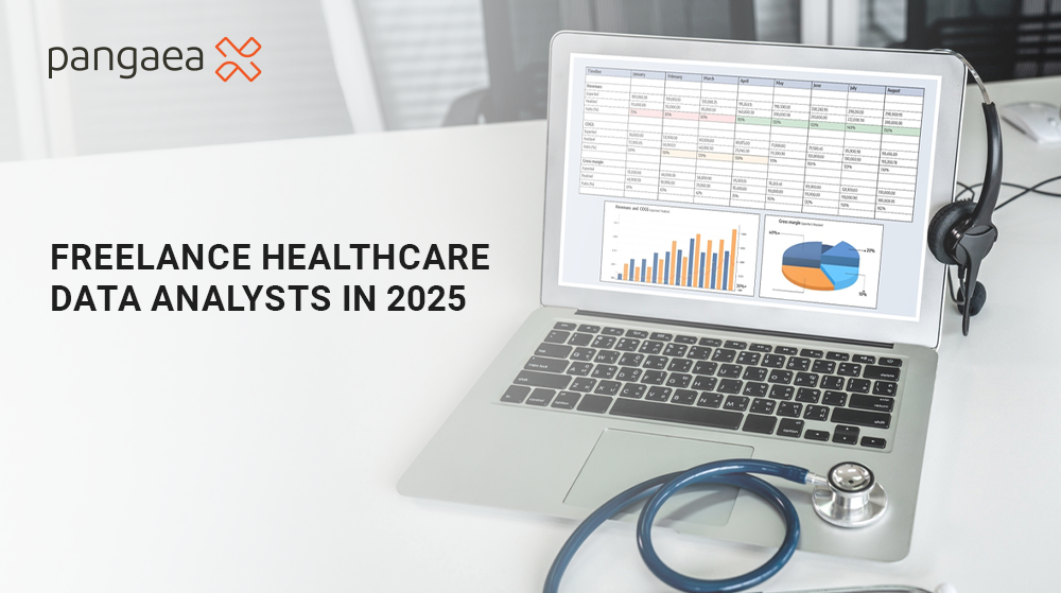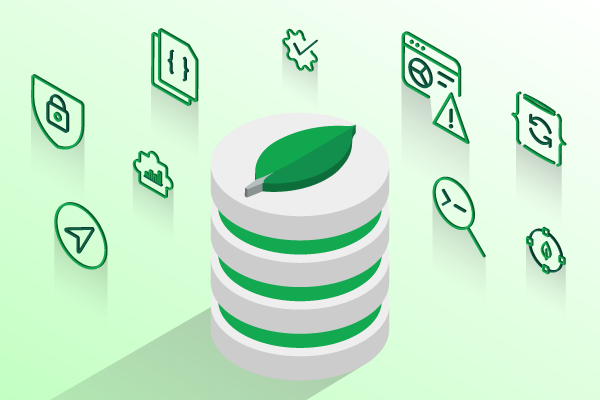Key Opportunities for Freelance Healthcare Data Analysts in 2025

Table of Contents
1. The Impact of AI-Driven Healthcare Analytics on Freelance Roles
2. Key Skills Driving Freelance Opportunities in 2025
3. Emerging Freelance Niches in Healthcare Analytics
4. The Gig Economy Boom: Why Healthcare Needs Freelancers
5. Top Tools and Technologies for Freelance Success
6. How to Market Yourself as a Freelance Healthcare Data Analyst
7. Conclusion
The healthcare industry is undergoing a major transformation, fueled by advancements in big data, artificial intelligence (AI), and the increasing demand for actionable insights. At the core of this shift lies healthcare data analytics—a field where freelance opportunities are rapidly growing. AI is revolutionizing how medical data is processed and interpreted, creating unprecedented freelance opportunities in 2025. Whether you’re an experienced analyst or an aspiring freelancer, this blog explores key trends, essential skills, and strategies to thrive in this evolving landscape.
The Impact of AI-Driven Healthcare Analytics on Freelance Roles
AI-driven analytics is reshaping healthcare, making it a goldmine for data professionals. From predictive analytics forecasting patient outcomes to machine learning models identifying disease patterns, AI is now a critical tool in healthcare. It enhances diagnostics, optimizes hospital operations, and personalizes patient care, leading to a growing demand for skilled analysts.
For freelancers, this means an increase in projects requiring expertise in AI interpretation. Hospitals, startups, and insurance firms increasingly rely on freelance data analysts to bridge the gap between raw data and meaningful insights. Many organizations prefer hiring freelancers over full-time specialists due to cost-effectiveness and flexibility. Analysts who can leverage AI to optimize treatment plans, predict hospital readmissions, and improve healthcare efficiency will find themselves in high demand. Learn More About the Role of AI in Healthcare Analytics.
Key Skills Driving Freelance Opportunities in 2025
To capitalize on these opportunities, developing a strong skill set at the intersection of healthcare and AI is crucial. Here are the top skills needed in 2025:
- Python for Analytics: Mastery of Python and its libraries like Pandas and Scikit-learn is essential for data manipulation and AI model building.
- Data Visualization: Proficiency in tools like Tableau and Power BI helps translate complex datasets into clear, actionable insights.
- AI and Machine Learning: Familiarity with machine learning frameworks (e.g., TensorFlow) and natural language processing (e.g., analyzing patient records) is a game-changer.
- Healthcare Domain Knowledge: Understanding electronic health records (EHRs), clinical trial data, and regulatory frameworks provides a competitive edge.
- SQL: The ability to efficiently query and manage large healthcare datasets is a critical requirement.
While AI enhances data processing, it is the human touch—contextualizing and interpreting insights—that makes freelance analysts indispensable.
Emerging Freelance Niches in Healthcare Analytics
As AI continues to evolve, new freelance niches are emerging in healthcare analytics. Here are key areas offering significant job opportunities in 2025:
- Telemedicine Analytics: With virtual healthcare services expanding, companies need analysts to track patient engagement, optimize digital platforms, and analyze telehealth data. This includes studying patient retention, appointment efficiency, and virtual health trends.
- Personalized Medicine: AI-driven genetic data analysis is enabling customized treatments. Analysts who can interpret genomic datasets and link them to clinical outcomes will find opportunities in biotech firms, pharmaceutical companies, and research institutions.
- Operational Efficiency: Hospitals leverage predictive analytics to optimize staffing, reduce wait times, and manage resources. Freelance analysts who can develop models for resource allocation, patient flow optimization, and cost reduction strategies will be highly sought after.
- Healthcare Fraud Detection: With rising cases of fraudulent claims and billing discrepancies, healthcare organizations and insurance companies need data analysts to identify anomalies, prevent fraud, and ensure compliance.
- Patient Risk Prediction: AI-driven predictive modeling helps healthcare providers assess patient risks, prevent hospital readmissions, and develop proactive treatment plans. Freelancers with expertise in risk modeling and predictive analytics will find increasing opportunities.
- Regulatory Compliance and Quality Assurance: Healthcare organizations require analysts to ensure compliance with regulatory standards like HIPAA and GDPR, improve data security, and maintain quality benchmarks in patient care.
These niches are rapidly growing, offering lucrative and diverse job opportunities. Specializing in one of these areas can set you apart in the freelance healthcare analytics market.
The Gig Economy Boom: Why Healthcare Needs Freelancers
The gig economy in healthcare is no longer a side hustle—it’s a driving force. By 2025, over 40% of healthcare analytics projects will involve freelancers. Organizations prefer short-term, high-impact engagements with freelancers over the long-term costs of full-time hires. Hiring in-house healthcare analysts comes with significant expenses, including salaries, benefits, training, and overhead costs. In contrast, freelancers offer a more budget-friendly approach, providing specialized skills on demand without ongoing financial commitments.
This shift is closely tied to AI’s influence. While AI delivers scalable analytics solutions, human expertise is still needed for implementation and interpretation. Freelancers provide cost-effective solutions, allowing healthcare providers to remain agile. Whether working on a short-term project analyzing patient satisfaction data or a quick-turnaround task modeling infection rates, freelancers are in high demand.
Top Tools and Technologies for Freelance Success
To stay competitive in 2025, mastering the right tools is essential. Here’s your toolkit:
- Cloud Computing: Platforms like AWS, Google Cloud, and Microsoft Azure provide scalable storage and processing for large healthcare datasets.
- AI Frameworks: TensorFlow, PyTorch, and SciKit-learn are critical for building machine learning models, from predicting patient readmissions to classifying medical images.
- Data Visualization Tools: In addition to Tableau, Looker and Google Data Studio are gaining traction for real-time analytics dashboards.
- Data Security & Compliance Tools: Tools like Varonis and BigID help ensure compliance with healthcare regulations (HIPAA, GDPR) while handling sensitive patient data.
- Remote Collaboration Tools: Slack, Notion, and Zoom facilitate communication with clients worldwide, ensuring seamless project execution.
- No-Code AI Tools: Platforms like DataRobot and H2O.ai allow analysts to build AI models without extensive coding, making data analysis more accessible to a broader audience.
- FHIR & HL7 Standards: Understanding healthcare interoperability standards like Fast Healthcare Interoperability Resources (FHIR) and Health Level Seven (HL7) can give freelancers an edge when working with EHRs and clinical data.
Leveraging these technologies will enhance your efficiency and marketability as a freelancer.
How to Market Yourself as a Freelance Healthcare Data Analyst
Technical skills alone are not enough to secure freelance opportunities—you also need visibility and credibility. Here’s how to stand out in 2025:
- Build an AI Portfolio: Showcase projects like predictive modeling for disease risk or telemedicine trend analysis to highlight your expertise.
- Leverage Freelancer Platforms: Utilize platforms like Pangaea X, Upwork, and Toptal to find freelance work, and use platforms like LinkedIn to post case studies, join healthcare analytics groups, and network with industry leaders. Pangaea X, in particular, specializes in connecting freelance healthcare data analysts with businesses and healthcare organizations seeking expert insights.
- Earn Healthcare Certifications: Certifications such as Certified Health Data Analyst (CHDA) or AI-specific credentials from Coursera can boost your credibility.
- Specialize in a Niche: Position yourself as an expert in telemedicine analytics, personalized medicine, or operational efficiency to attract high-value clients.
Marketing is not just about promotion—it’s about proving that you are the right solution for your client’s needs.
Conclusion
The future of healthcare analytics is promising, with freelancers playing a pivotal role. Platforms like Pangaea X connects skilled freelancers with businesses, hospitals, and healthcare organizations that need expert data analysis. As AI transforms healthcare by optimizing diagnostics and streamlining operations, freelance healthcare data analysts are well-positioned to capitalize on this evolution in 2025.
Success in this field requires continuous upskilling in AI, mastering essential data tools, and strategically marketing your expertise. Whether optimizing hospital efficiency, analyzing telemedicine trends, or pioneering personalized medicine, freelancers can make a tangible impact on healthcare analytics.
As the industry advances, those who embrace innovation, adaptability, and data-driven decision-making will thrive. Build your portfolio, sharpen your skills, and embrace the freelance revolution—the healthcare sector is actively seeking your expertise.
Get your data results fast and accelerate your business performance with the insights you need today.



